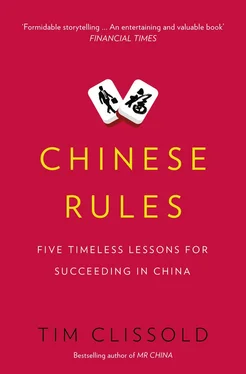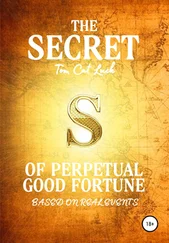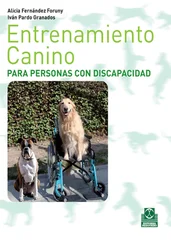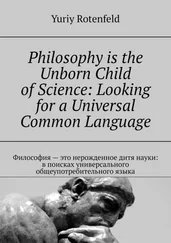During those months, as I worked in the plush offices at the bank during the day and returned to the hutong in the evening, I noticed the city beginning to change, gradually at first. When we moved into the courtyard, even though we were in the midst of an enormous city, we felt somehow connected to nature and aware of the turn of the seasons. In winter, it was so cold that the children sometimes wore coats in bed; by summertime, it was sweltering and flash thunderstorms flooded the courtyard, sending us retreating up the steps to listen to the rain splashing on the clay tiles above our heads. In the local vegetable markets, pots of pickled vegetables or white cabbage lined the stalls throughout the winter, and in the late summer, we’d find cut flowers, lotus root and ginger. But the changes around us gathered pace as the city began to modernize. I’d often notice that an old restaurant had vanished and a mobile phone outlet had appeared in its place, or that a corner shop had been demolished to make way for a wider road.
In the early days I hardly noticed, but the pace became more rapid. Suddenly a long line of shops had gone; then the whole side of a road would disappear. I heard rumours about an old woman in Xicheng District, on the west side of Beijing, who had chained herself to a tree inside her old courtyard as an official read out the eviction order. She’d lived there for sixty years and had nowhere else to go. Grabbing my bicycle, I rode over to see what was going on and found a sea of rubble with the odd solitary tree standing where the old courtyard gardens had been. Window frames and roofbeams lay scattered on the ground; broken saucepans and smashed pots sat among the heaps of shattered tiles.
Once Beijing won the hosting of the 2008 Summer Olympics, there was an inevitability to the fate of the old city. Twenty billion dollars had been set aside to upgrade the capital, and for several years large sections of it vanished behind the perimeter fences of construction sites. Huge areas of the ancient city disappeared forever. Miles of old alleyways and winding backstreets fell beneath the hammer. A hundred thousand workers poured in from the countryside and swarmed over the old buildings, uprooting ancient wisterias from courtyard houses and dumping them on the heaps of broken bricks outside. Ornate doorways were torn away; tiles were pulled from roofs. I sank into a kind of siege mentality and shut my mind to what was happening. All around, the air shook with the roar of bulldozers and I could feel the distant pounding of pile drivers through the ground beneath my feet. I heard that more areas of old hutongs in the north had disappeared, but I couldn’t bear to go and look. All around us, an ancient way of life was dismantled brick by brick.
One day, we came back to find that a character I had seen written inside a circle on hundreds of other courtyard walls was now painted on the wall of our own.

The character means ‘demolish’, ‘strike down’, ‘strip’, or ‘tear apart’. It was the only notice we had that the bulldozers were about to move in. At first I put up a fight; a famous author had owned the courtyard in the 1930s, but of course my argument that the old building should be preserved because of its historical value fell on deaf ears. Then I told them we’d refuse to move out. ‘ Wo bu zou le! ’ I said. I’m not going anywhere! But the old woman at the Street Committee just shrugged and squinted at me briefly before adjusting her glasses and turning back to her newspapers. ‘ Hao ba! Xingqi san ting shui le! ’ she said. Okay then! Wednesday the water will stop! So I sat in the courtyard as the workers climbed onto the roofs around me with their hammers and picks, and bits of old tile and plaster fell down onto the lawn beside my feet.
Nowadays, the view from the top of the hill behind the Forbidden City is often obscured by smog; the air of the Beijing summer is opaque. Down below, the traffic snarls and tempers fray. Cyclists clutch at their mouths and turn their faces away from the fumes. In my mind’s eye, I fly westward across the mountains, out towards the dusty orchards, the country villages, and the crumbling loess soil on the plains of central China. Beijing is a vantage point to survey all the desperate activity across China; inland, millions toil in search of a better life. Miners descend in black cages; workers hack at rock faces and dig tunnels for the next intercity highway. Engines roar and sirens scream; the rivers inland have run completely dry, their beds a mass of smashed rocks covered with thornbushes, and there are no trees. Dead fish float about in filmy water. Plagues of river rats ravage the crops, deserts devour the fields, and acid rain falls across the land.
On Beijing’s old foundations, a new metropolis of vast proportions has been thrown together in a few years. Glass spikes rise skyward and elevated highways dominate the landscape now. In a few small areas of Old Beijing, around the lakes and drum towers of the Ming Dynasty city, the government preserved the ancient courtyards, but they cower in the shadows of high-rise apartment blocks. The alleyways there are clogged with rickshaws full of shouting tourists. China has moved on as it prepares to take on its new role in the world. Beijing had become less foreign, less different, and consequently – for me – less interesting.
I had begun to feel doubts about whether I was doing the right thing at the bank. Besides, the children were growing up so quickly. I felt a growing sense of inevitability about a move back to England. But it was with a heavy heart the following summer, after nearly twenty years in China, that I called a shipping agent and we started the journey back.
We had found a place in a small rural village tucked in among the hills at the foot of the Yorkshire Dales. It was close to the place where I had grown up, and at first I enjoyed the familiar sight of the stone walls arching across the fields as they rolled up the dales, the grass clipped short by the sheep, the smell of bracken and heather. Lorraine seemed relieved to be back in the fresh air and countryside and quickly gathered a menagerie of animals around her. She stocked up the vegetable garden and left grain in the little dovecot. The children threw themselves into the outside life, racing in horse shows, falling out of trees, and galloping through the mud in the hills and in other people’s gardens. Three cats and an indeterminate number of horses joined the two dogs we brought back from China.
Stupidly, we chose an old house that was far too big for us and needed an enormous amount of work. The place was so infested with field mice that even the cats despaired; the window frames were rotten and after poking around in the cellar, we saw that part of the foundations were propped up with stacks of newspapers dating from the 1960s. I discovered a row of buckets in the attic for collecting the drips, and throughout the interminable damp of the first Yorkshire winter, the rain cascaded through the roof and ran down the walls, short-circuiting the electrical outlets and providing impressive blue sparks around the light switches. Downstairs, the coal fires barely took the frost off the carpets and the wind howled through the shutters. After nearly twenty years in China, it was tough to adapt to such a different life. I found it difficult to re-engage and fit in.
Over the following months, I took long walks in the countryside in the drizzle, musing about China and slipping about in the mud with the two dogs from Beijing. My mood recovered slightly with the onset of spring, when the banks along the country lanes were scattered with snowdrops and then daffodils. But I still found it difficult to reorient my thinking to the old English ways. How do you explain to one of the local farmers that if your dog strayed onto their land just to enjoy chasing the odd sheep, they would only respond to instructions in Mandarin? I’d often end up yelling at the dogs outside the village post office; they’d cock their heads and look at me in bemusement if I said ‘Sit!’ but were instantly responsive to ‘ Zuo! ’
Читать дальше













